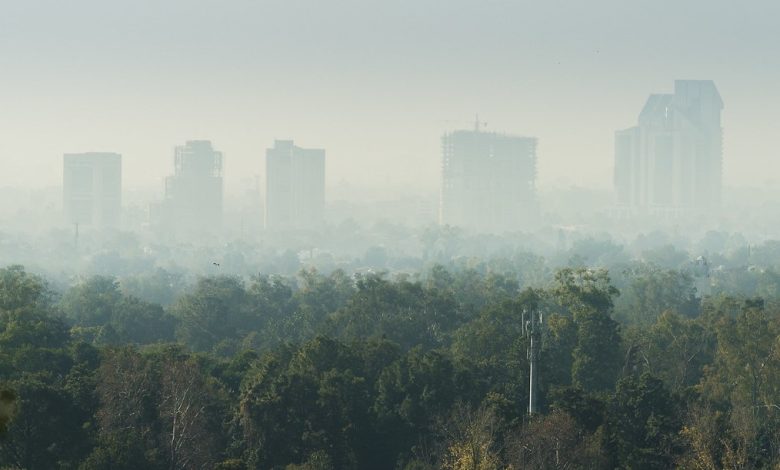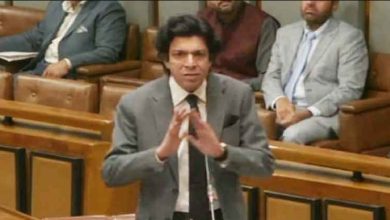Smog in Pakistan – An Emerging Crisis and Its Effects on Public Health
By: M. Moin Butt

In recent years, Pakistan has been grappling with a severe air quality crisis, particularly during the winter months. The phenomenon, often referred to as smog, has become increasingly prevalent in major cities like Lahore, Karachi, and Islamabad. This thick, toxic haze is not just an environmental concern; it poses significant threats to public health, exacerbating respiratory conditions and contributing to a rise in mortality rates. This article explores the causes, effects, and potential solutions to the smog crisis in Pakistan.
Understanding Smog
Smog is a type of air pollution that is characterized by a mixture of fog and smoke. It typically occurs when atmospheric conditions trap pollutants close to the ground, creating a thick, murky haze. In Pakistan, smog is primarily caused by industrial emissions, vehicular exhaust, and the burning of agricultural waste. Seasonal factors, including temperature inversions and humidity, exacerbate the problem, leading to severe air quality issues, particularly from October to February.
Causes of Smog in Pakistan
- Industrial Emissions: Pakistan’s rapid industrial growth has come at a cost. Factories often operate with minimal regulation, emitting harmful pollutants into the air. The lack of effective enforcement of environmental laws contributes significantly to the rising levels of smog.
- Vehicular Emissions: The increasing number of vehicles on the roads, many of which are poorly maintained, has led to a surge in emissions. With millions of cars, motorcycles, and rickshaws in operation, the transport sector is a major contributor to urban air pollution.
- Agricultural Practices: The practice of burning crop residues, particularly in Punjab, is a significant source of particulate matter that contributes to smog formation. Farmers often resort to this method to clear fields quickly, but it releases large amounts of smoke into the atmosphere.
- Construction Activities: Unregulated construction and infrastructure projects contribute to dust and particulate matter in the air. The lack of proper management in these projects further exacerbates air quality issues.
- Weather Conditions: Meteorological factors play a crucial role in the development of smog. During winter, temperature inversions trap pollutants near the ground, leading to higher concentrations of smog in urban areas.
Health Effects of Smog
The impact of smog on public health is profound and multifaceted. Studies have shown that exposure to polluted air can lead to various health problems, including:
- Respiratory Issues: Smog is notorious for exacerbating respiratory diseases such as asthma, bronchitis, and chronic obstructive pulmonary disease (COPD). The fine particulate matter (PM2.5) found in smog can penetrate deep into the lungs, causing inflammation and long-term damage.
- Cardiovascular Diseases: Air pollution has been linked to an increased risk of heart attacks and strokes. The toxic particles in smog can enter the bloodstream, leading to cardiovascular complications.
- Premature Mortality: Research indicates a correlation between high levels of air pollution and increased mortality rates. In Pakistan, the World Health Organization (WHO) has reported that air pollution contributes to thousands of premature deaths each year.
- Impact on Children: Children are particularly vulnerable to the effects of air pollution. Exposure to smog can lead to developmental issues, reduced lung function, and increased susceptibility to infections.
- Mental Health: Emerging studies suggest a connection between air pollution and mental health issues, including anxiety and depression. The stress of living in polluted environments may exacerbate these conditions.
Socioeconomic Impact
The smog crisis in Pakistan does not only affect health; it also has significant socioeconomic implications. The impact of poor air quality can be observed in various sectors:
- Healthcare Costs: The rise in respiratory and cardiovascular diseases due to smog results in increased healthcare costs for individuals and the government. Hospitals face overwhelming patient loads during smog season, straining the healthcare system.
- Reduced Productivity: Poor air quality can lead to reduced work productivity. Workers experiencing health issues related to smog are likely to take more sick days, affecting overall economic output.
- Education: Schools in severely affected areas often have to close during smog events, disrupting education for children. This can lead to long-term educational setbacks, particularly in vulnerable communities.
- Tourism: Cities known for their natural beauty and cultural heritage, such as Lahore, suffer from decreased tourism due to poor air quality. Smog creates a negative perception, deterring tourists from visiting.
Government Response and Policies
The Pakistani government has recognized the smog crisis, but responses have often been reactive rather than proactive. Efforts to combat air pollution include:
- Legislation: Some laws and regulations aimed at reducing emissions from industries and vehicles have been introduced, but enforcement remains a significant challenge.
- Awareness Campaigns: The government has launched public awareness campaigns to educate citizens about the dangers of air pollution and promote measures to reduce exposure.
- Monitoring Air Quality: The establishment of air quality monitoring stations in major cities has been a step towards better understanding and addressing the smog issue. However, more extensive and consistent monitoring is needed.
- International Collaboration: Pakistan has engaged with international organizations to seek support in developing sustainable solutions to combat air pollution.
Community Initiatives
In addition to government efforts, local communities and NGOs are taking action to address the smog crisis:
- Tree Planting Campaigns: Communities are organizing tree-planting drives to improve air quality and increase green cover in urban areas.
- Awareness Programs: NGOs are conducting workshops and seminars to raise awareness about the health effects of air pollution and promote lifestyle changes that can reduce exposure.
- Advocacy for Policy Change: Grassroots movements are advocating for stronger environmental policies and better enforcement of existing regulations to protect public health.
Personal Precautions
While systemic changes are necessary to address the root causes of smog, individuals can take measures to protect themselves:
- Staying Informed: Keeping track of air quality indices (AQI) can help individuals plan their outdoor activities and minimize exposure on high-pollution days.
- Wearing Masks: Using N95 or similar masks can provide some protection against inhaling harmful particles, especially during smoggy conditions.
- Indoor Air Quality: Investing in air purifiers and maintaining proper ventilation can help improve indoor air quality, providing a safer environment at home.
- Avoiding Outdoor Activities: Limiting outdoor activities during peak smog hours can reduce exposure to harmful pollutants.
Long-Term Solutions
Addressing the smog crisis in Pakistan requires comprehensive, long-term strategies:
- Strengthening Regulations: Implementing and enforcing stricter environmental regulations on industrial emissions and vehicular exhaust is crucial. Incentives for cleaner technologies can also drive change.
- Promoting Sustainable Practices: Encouraging sustainable agricultural practices, including alternatives to crop burning, can significantly reduce particulate matter in the air.
- Investing in Public Transport: Enhancing public transport infrastructure can decrease the reliance on personal vehicles, reducing overall emissions in urban areas.
- Raising Public Awareness: Continuous education about the sources and effects of air pollution is essential for fostering a culture of environmental responsibility.
- Collaboration with International Organizations: Engaging with global partners can provide technical expertise and financial support for air quality management initiatives.
Conclusion
The smog crisis in Pakistan is a pressing issue that demands urgent attention. With significant health impacts, economic repercussions, and environmental consequences, the need for comprehensive solutions is clear. While individual actions can help mitigate the effects of smog, systemic change through effective government policies, community initiatives, and international collaboration is essential for a sustainable future. As Pakistan moves forward, addressing air quality issues will not only improve public health but also enhance the quality of life for all its citizens.




